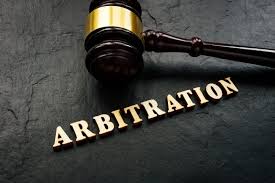In today’s interconnected global marketplace, businesses and individuals increasingly rely on arbitration to resolve disputes efficiently and fairly. As international trade and cross-border dealings continue to flourish, the need for impartial, effective, and enforceable dispute resolution mechanisms has never been greater. Arbitration Singapore has emerged as one of the most trusted methods for resolving such disputes, thanks to its well-established legal framework, world-class arbitration institutions, and commitment to neutrality.
This article provides a comprehensive guide to understanding arbitration in Singapore, explaining how it works, why it’s a top choice for dispute resolution, and what makes Singapore a globally recognized hub for arbitration.
What Is Arbitration?
Arbitration is a method of alternative dispute resolution (ADR) in which parties to a dispute agree to submit their issues to an impartial third party, known as an arbitrator. The arbitrator’s role is to resolve the dispute by making a binding decision, referred to as an “award.” Arbitration is often preferred in international disputes due to its flexibility, speed, and enforceability across borders.
In arbitration, the parties can choose the venue, language, applicable law, and even the arbitrators, allowing for greater control over the process. Arbitration proceedings are typically private, meaning they are not open to the public, which adds to the confidentiality of the process.
Why Choose Arbitration in Singapore?
Singapore has quickly become one of the world’s leading arbitration hubs, attracting businesses, governments, and legal professionals from around the globe. Several factors contribute to Singapore’s popularity as a destination for arbitration, making it an attractive option for resolving international disputes.
1. A Well-Developed Legal Framework
The backbone of Singapore’s success as an arbitration hub is its robust legal framework. The country’s Arbitration Act and International Arbitration Act (IAA) provide a modern, clear, and efficient set of rules governing arbitration proceedings. These laws are aligned with international standards, specifically the UNCITRAL Model Law, which ensures consistency with global arbitration practices.
Furthermore, Singapore’s arbitration laws are designed to minimize judicial intervention, ensuring that arbitration proceedings remain independent and impartial. Courts in Singapore play a supportive role, intervening only when necessary to enforce agreements, appoint arbitrators, or set aside awards on very limited grounds. This approach reinforces Singapore’s reputation for being a neutral, arbitration-friendly jurisdiction.
2. World-Class Arbitration Institutions
Singapore boasts some of the best arbitration institutions in the world, providing businesses with access to top-tier arbitration services. The Singapore International Arbitration Centre (SIAC) is the most well-known of these institutions. Established in 1991, SIAC has grown rapidly in reputation and stature, handling thousands of international disputes across a broad range of industries such as finance, energy, construction, and intellectual property.
SIAC’s rules are designed to ensure efficiency, transparency, and fairness, and the institution is well-known for its expedited procedures, which allow for quicker resolution of disputes. The center is also respected for its diverse pool of qualified arbitrators who specialize in various areas of law, providing parties with expert guidance tailored to their specific dispute.
Additionally, Singapore Mediation Centre (SMC) and other arbitration-related bodies offer complementary services, ensuring that the country is fully equipped to handle all forms of dispute resolution.
3. Neutrality and Impartiality
Neutrality is a core principle of arbitration, and Singapore has built a strong reputation for impartiality in resolving disputes. As a multicultural, politically stable, and economically thriving nation, Singapore is seen as a neutral venue where parties from different legal and cultural backgrounds can resolve disputes fairly. This neutrality is particularly valuable in international arbitration, where parties from different countries might worry about potential bias in another jurisdiction’s legal system.
The country’s neutrality extends to the selection of arbitrators. Singapore’s extensive pool of experienced arbitrators is highly respected for its neutrality, as arbitrators are often chosen based on their expertise, experience, and impartiality rather than their nationality or affiliation.
4. Enforceability of Arbitration Awards
One of the major advantages of choosing arbitration in Singapore is the enforceability of arbitration awards. Singapore is a signatory to the New York Convention, which is an international treaty that facilitates the recognition and enforcement of foreign arbitral awards in more than 160 countries. This ensures that any arbitral award issued in Singapore is likely to be respected and enforced globally, giving businesses the confidence that their dispute resolution outcomes will be recognized worldwide.
Furthermore, Singapore’s own domestic laws make it easy to enforce arbitral awards within the country, ensuring that the arbitration process is both effective and secure for all parties involved.
5. Efficiency and Speed
Arbitration in Singapore is known for its speed and efficiency, offering an attractive alternative to the often slow and costly processes of traditional litigation. Singapore’s legal and institutional frameworks have been designed with efficiency in mind, ensuring that disputes are resolved as quickly as possible while maintaining fairness.
For example, SIAC offers expedited arbitration procedures where cases can be resolved in as little as six months, depending on their complexity. Additionally, the use of technology, including video conferencing and electronic document management, has significantly reduced delays and streamlined proceedings, making arbitration in Singapore even faster.
6. Cost-Effectiveness
Arbitration in Singapore can be a cost-effective solution compared to litigation in other major international jurisdictions. While arbitration fees vary depending on the complexity of the case, Singapore’s arbitration system is generally considered more affordable than arbitration in cities like London or New York. This cost-effectiveness, combined with the speed of the process, makes arbitration in Singapore an attractive choice for businesses of all sizes.
Singapore also offers a pro-business regulatory environment, which further reduces costs and allows companies to focus on their disputes without worrying about excessive legal expenses.
The Arbitration Process in Singapore
Understanding the arbitration process is essential for anyone considering arbitration in Singapore. While the specific procedures may vary depending on the arbitration institution and the nature of the dispute, the basic process generally follows these steps:
1. Agreement to Arbitrate
The process begins with an arbitration agreement. This agreement can be part of a contract or entered into separately after a dispute arises. The agreement outlines the terms and conditions for arbitration, including the choice of arbitrators, venue, and applicable rules.
2. Appointment of Arbitrators
Once the arbitration agreement is in place, the parties will appoint one or more arbitrators. If the parties cannot agree on the selection of an arbitrator, the institution (e.g., SIAC) can assist with the appointment.
3. Arbitral Hearing
The arbitrator(s) will conduct hearings where both parties present their case, including evidence and witnesses. Depending on the agreement, these hearings may be held in person or virtually.
4. Award Issuance
After considering all the evidence and arguments, the arbitrator will issue an award, which is a legally binding decision. The award is typically issued within a few months after the hearings are completed, depending on the complexity of the case.
5. Enforcement of the Award
Once the award is issued, it can be enforced in Singapore or internationally, depending on the applicable laws and treaties.
Conclusion
Arbitration in Singapore has established itself as a leading method of dispute resolution for businesses and individuals involved in cross-border disputes. With a supportive legal framework, world-class institutions like SIAC, impartiality, and enforceability on the global stage, Singapore offers an ideal platform for resolving complex international disputes. Its commitment to efficiency, neutrality, and fairness ensures that arbitration in Singapore continues to be the preferred choice for companies worldwide, setting the standard for effective, fair, and internationally recognized dispute resolution. Whether you are engaged in commercial, maritime, construction, or intellectual property disputes, Singapore’s arbitration process offers a trusted route to secure and enforceable outcomes.

